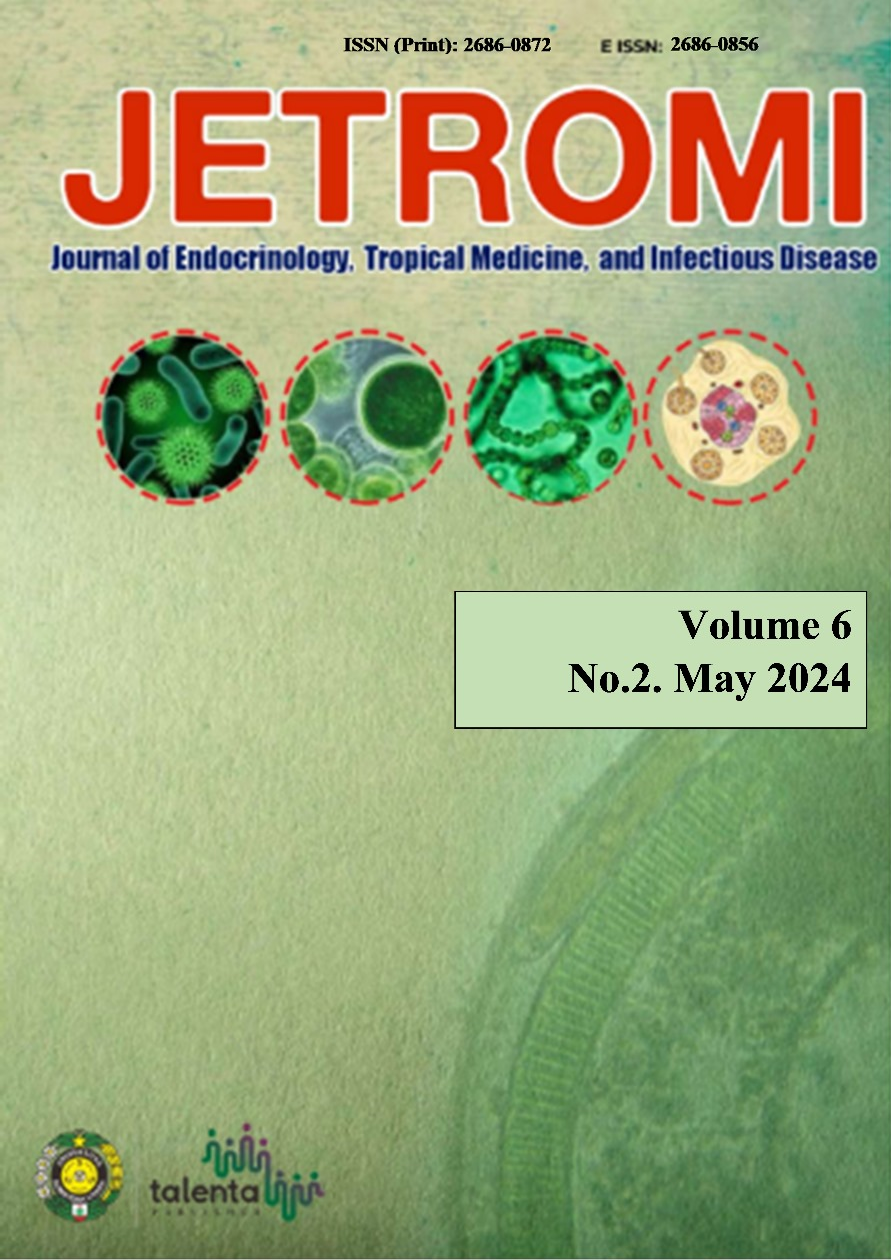The Effect of a Health Behavior Modification Model on Lipid Profile and Body Fat of Educational Personnel
DOI:
https://doi.org/10.32734/jetromi.v6i2.15821Keywords:
Body Fat, Blood Lipids, Healthy Behavior ChangesAbstract
Background: The health behavior modification model program addresses diet, exercise, and nutritional depletion on lipid profile and body fat can improve the causes of chronic disease. The purpose of this study was to determine the effects of a health behavior modification model on the blood lipid profile and body fat levels of educational personnel.
Method: This study's five-month data collection timeframe for this study (during the COVID-19 pandemic condition) was from October 2021 to March 2022. Participants are educational personnel of Kasetsart University, Kamphaeng Saen Campus with dyslipidemia (The National Cholesterol Education Program criteria)., aged 19 years and older, both males and females. The inclusion criteria are cholesterol over 200 mg/dl LDL-C over 100 mg/dl triglycerides more than 150 mg/dl or HDL-C less than 40 mg/dL. The satisfaction with the health behavior modification model KPS-FEE, which consisted of 6 activities: K (Knowledge), P (Produce), S (Support), F (Food), eat well, E (Exercise), exercise and E (Emotion), relax and feel good. The subjects were satisfied with the health behavior modification model at a good level (mean score 4.13 ± 0.47).
Result: The sample group consisted of 31 personnel by volunteer selection. The mean scores for cholesterol, fat mass, and abdominal fat levels decreased significantly (p < 0.05) after the experiment. Although there were no statistically significant differences, the participants’ values tended to improve.
Conclusion: Health behavior modification will improve a person’s health and happiness, and their ability to perform more effectively can be used in other departments with similar environments and job requirements.
Downloads
Downloads
Published
Issue
Section
License
Copyright (c) 2024 Journal of Endocrinology, Tropical Medicine, and Infectious Disease (JETROMI)

This work is licensed under a Creative Commons Attribution-NonCommercial-ShareAlike 4.0 International License.
The Authors submitting a manuscript do so on the understanding that if accepted for publication, copyright of the article shall be assigned to Journal of Endocrinology, Tropical Medicine and Infectious Diseases (JETROMI).
Copyright encompasses exclusive rights to reproduce and deliver the article in all form and media. The reproduction of any part of this journal, its storage in databases and its transmission by any form or media, will be allowed only with a written permission from Journal of Endocrinology, Tropical Medicine and Infectious Diseases (JETROMI).








